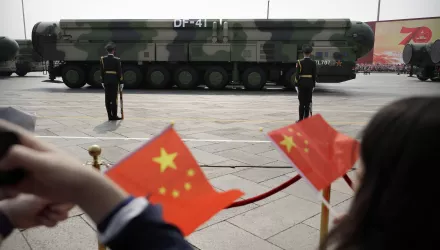Since 1983, China has had the objective of developing breeder reactors to run on recycled plutonium. Since 2004, it has been progressing through three stages of its plutonium recycling strategy: from pilot to demonstration to commercial facilities. At the first stage, in 2010, China began testing a pilot civilian reprocessing plant and running a small experimental fast reactor. Although those pilot facilities did not perform well, since 2015 China has moved forward to the second stage, which includes a demonstration reprocessing plant, a mixed-oxide fuel facility, and two demonstration liquid-sodium-cooled fast-neutron reactors. Recent satellite images and other information show construction of those demonstration facilities is actively underway. Meanwhile, the China National Nuclear Corporation is pushing toward the third stage by negotiating with France’s nuclear fuel cycle company Orano (formerly Areva) over the purchase of a large commercial reprocessing plant, and has proposed construction of large commercial fast-neutron reactors by 2028.
Hui Zhang, “China is speeding up its plutonium recycling programs,” Bulletin of the Atomic Scientists, Vol.76, No.4, 2020.
The full text of this publication is available via Bulletin of the Atomic Scientists.





